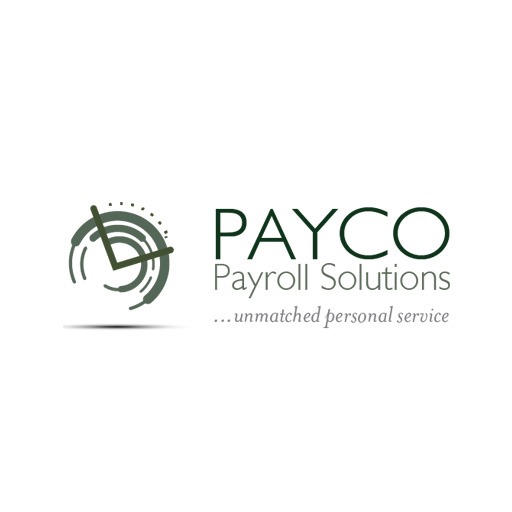Navigating payroll taxes can be daunting, especially for those just starting their own small business. Payroll taxes are not just about paying your employees. They involve understanding and complying with various tax laws, which can seem like a huge mountain to climb at first. However, once you grasp the basics, it becomes much more manageable.
In Cleveland, Georgia, business owners face specific requirements and challenges related to payroll taxes that must be addressed properly. Knowing which taxes apply to your business and why they matter is essential. Properly managing payroll taxes ensures compliance with the law and helps maintain smooth operations within your business.
For new business owners, understanding payroll taxes is a vital part of running a successful business. A clear grasp of these taxes helps you avoid mistakes that could lead to penalties or financial issues. Taking the time to learn about payroll taxes now can save you from headaches and ensure your business operates efficiently and legally.
Basics of Payroll Taxes and Their Importance
Payroll taxes are the taxes that employers withhold from their employees’ salaries, along with specific contributions made by the employer. Understanding these taxes helps ensure you follow all legal requirements and handle your business finances correctly. For beginners, recognizing the types of payroll taxes is the first step.
Two main components make up payroll taxes: employee contributions, which are taken from employees’ wages, and employer contributions, which you pay from your business funds. These taxes fund vital programs like Social Security and Medicare. They also include federal and state income taxes, along with federal unemployment tax (FUTA) for the employer.
It’s important to accurately calculate and file these taxes to avoid penalties. Errors in payroll tax filing can lead to costly fines and impact your relationship with your employees. Compliance not only fulfills legal obligations but also builds trust with your workforce by ensuring they receive their accurate wages and benefits.
In Cleveland, Georgia, the specific regulations governing payroll taxes might differ slightly from other areas. Familiarize yourself with local requirements to maintain compliance. Handling payroll taxes correctly from the start sets a solid foundation for your small business’s financial health.
Key Payroll Taxes to Consider for Small Businesses
Small business owners must navigate several types of payroll taxes. Here are the key taxes to consider:
- Social Security Tax: This funds the Social Security program and provides benefits for retirees, the disabled, and survivors. As of 2025, employers and employees each contribute 6.2% of wages up to a certain limit.
- Medicare Tax: This tax supports Medicare, providing health care for individuals over 65 and under specific conditions. Both employer and employee must contribute 1.45% of wages, with no wage base limit.
- Federal Income Tax: Employers withhold this tax based on employee earnings and the information employees provide on their W-4 forms. The tax amount varies depending on income and filing status.
- State Income Tax: Georgia requires state income tax withholding from employee wages, which you must remit to the state. The Georgia Department of Revenue provides guidelines for calculating the withholding amount.
- Federal Unemployment Tax Act (FUTA): Employers pay this tax to fund unemployment benefits. The standard FUTA rate is 6.0% on the first $7,000 paid to each employee yearly. However, credits may reduce this rate.
- State Unemployment Tax (SUTA): Similar to FUTA, this tax funds state unemployment programs. Georgia sets its SUTA tax rates and taxable wage base, which may vary by business.
Understanding these taxes is crucial for compliance and effective payroll management. Keeping up-to-date with tax rates and requirements allows your business to operate smoothly and avoid legal issues.
Common Challenges with Payroll Taxes and Solutions
Dealing with payroll taxes presents various challenges for small business owners. Tackling these issues head-on is crucial for compliance and smooth operations. One common problem is accurately calculating taxes.
Minor mistakes in tax calculation can lead to big problems, such as penalties or employee dissatisfaction. Regular training sessions for your payroll team help reduce these errors by keeping them informed about tax rules and changes.
Another challenge is meeting filing deadlines. Late tax filing can result in unnecessary fines. To avoid this, set up a calendar with reminders for each tax deadline. Organizing your filing system also helps ensure all required documents are submitted on time.
Handling tax discrepancies can be stressful. Mistakes may occur in withholdings or in employee classifications, affecting tax obligations. Conduct regular audits to catch and correct these errors early. Establish clear processes for handling corrections, and ensure documentation is in order.
For small businesses in Cleveland, Georgia, staying updated with local tax requirements is important. Sometimes, state-specific rules change, and not adhering to them could lead to compliance issues. Partnering with a tax expert familiar with Georgia laws provides peace of mind and ensures all obligations are met.
Tools and Tips for Managing Payroll Taxes Efficiently
Using the right tools and tips helps manage payroll taxes more efficiently. Technology offers numerous solutions that simplify tax management. Payroll software automates tax calculations and filings, reducing errors and saving time. Look for systems that update regularly to reflect the latest tax laws and rates.
Cloud-based solutions offer flexibility, allowing you to access payroll information anytime, anywhere. This convenience is particularly useful for businesses with remote or satellite offices. Such platforms also provide secure storage for payroll records, ensuring data is safe and easily retrievable when needed.
Direct deposit is another tool that facilitates payroll management. It eliminates the need for manual checks, making payments quicker and more secure. Employees appreciate the direct deposit’s convenience, contributing to overall satisfaction.
To further streamline the process, consider integrating your payroll system with accounting software. This integration reduces data entry errors and ensures consistency across financial records. The combination allows seamless tracking of expenses and incomes related to payroll taxes.
1. Create A Payroll Checklist: Use a checklist to keep track of tasks like calculating, withholding, and depositing taxes.
2. Stay Informed: Attend webinars or read updates about payroll tax changes.
3. Set Reminders: Use digital tools to remind you of due dates for payments and filings.
Efficient management of payroll taxes is within reach when armed with the right strategies and resources.
Conclusion:
Handling payroll taxes might seem complex, but it becomes manageable with knowledge, tools, and organization. Addressing common challenges head-on ensures your business in Cleveland, Georgia, stays compliant and avoids unnecessary hurdles. By making smart use of technology and following best practices, you can simplify your payroll tax processes.
If you’re seeking guidance or expertise in managing your payroll taxes, PayCo Payroll Solutions, one of the leading
payroll service providers, is here to help. We offer tailored solutions designed to streamline your tax management and keep your small business on the right track. Let us make payroll taxes easier for you, so you can focus on what truly matters: growing your business.





